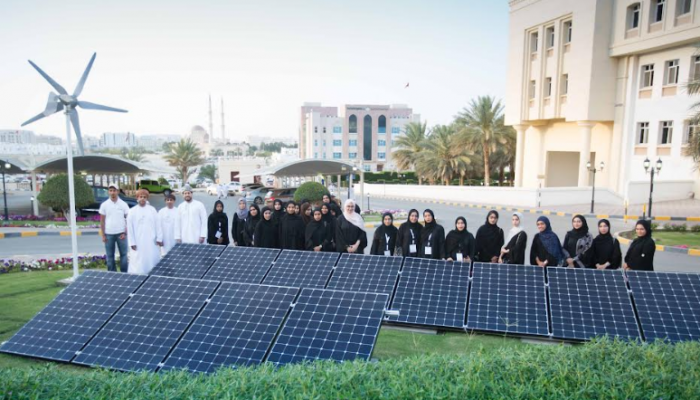Oman’s bp Oman, in partnership with Nafath Renewable Energy’s programme, ‘Mustadeem 4’ and in collaboration with the Ministry of Agriculture, Fisheries and Water Resources, has successfully supported many Omani farms by providing RE sources.
‘Mustadeem 4’ is a social investment programme launched by Oman’s Nafath Renewable Energy, last year in partnership with bp Oman, an energy firm. The programme has a target to provide 54 independent 10 kilowatt solar energy systems for water pumps, greenhouses and farms in the Wilayat of Al Suwaiq and Al Khaburah. These areas were previously hit by Cyclone Shaheen.
The programme has completed the construction of the solar panels in 37 farms in Al Suwaiq, that has reached the installation phase. Further, the construction in the 17 farms in Al Khaburah have started. Under the programme, training sessions and workshops were conducted for university and college students as well as jobseekers on solar energy systems, benefiting 800 beneficiaries. Eight workshops have been conducted till date.
The programme, Mustadeem 4 has also helped three Omani SMEs during the solar panel installation phase and trained 24 Omani job seekers.
Ibrahim Al Hinai, Social Investment Manager at bp Oman, Qatar and Kuwait, commented, “Our social investment programme Mustadeem 4 is a great example of how we can enable the agricultural sector and community with renewable energy resources like solar power energy – an abundant resource in Oman. The project is expected to displace 640 metric tons of carbon dioxide emissions in our environment supporting the country’s net zero targets by 2050 and puts our sustainability aims in action. We thank our partners Nafath Renewable energy for their support in implementing this project.”
Dr. Masaod Al Azri from Ministry of Agriculture, Fisheries and Water Resources further commented, “Mustadeem 4 has shown considerable impact and progress so far, in both technical and practical aspects. The programme was also able to attract many farmers and community members to the concept of renewable sources, and our partnership with Nafath Renewable Energy has enabled us to filter and select many suitable farms for this project as part of our food security projects and aims.”
Dr. Mazin Al Khabouri, one of the farmers involved in the project, further added, “This initiative and the installation of solar panels is very eco-friendly and environmentally friendly but also helps us as farmers in reducing our electricity costs. It is a new beneficial approach, and we hope that many farms have the same opportunities to do so.”


